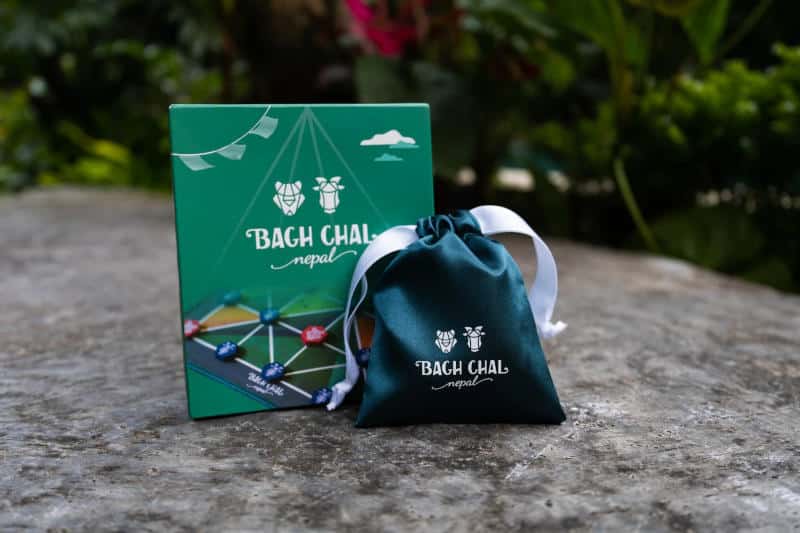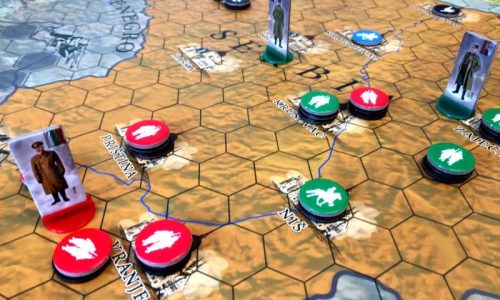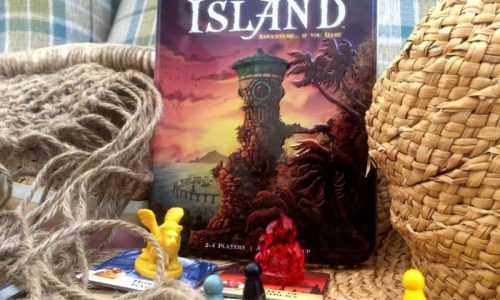
Bagh Chal (Saturday Review)
- Nelly
- July 10, 2024
- Board Games
Bagh-Chal, also known as “Tiger-Move” or “Goats and Tigers”, is a traditional Nepalese board game that has been played for centuries. This strategic game of skill and cunning is a favorite pastime for many people in Nepal, particularly in rural areas where traditional games are still popular.
The game is played on a cross-shaped board with four tigers and twenty goats. The tigers are placed in the corners of the board, while the goats are placed in the empty spaces in the middle. The tigers are tasked with capturing the goats, while the goats must try to trap the tigers and prevent them from moving.
The game is played in two phases. In the first phase, the goats are placed on the board one by one, while the tigers remain stationary. The goats must try to encircle the tigers and cut off their movements. Once all the goats have been placed on the board, the second phase begins. In this phase, the tigers can move one space in any direction, while the goats can move to an adjacent empty space.
The tigers win the game if they capture five goats, while the goats win if they successfully trap the tigers so that they cannot move. Bagh-Chal is a game of skill, strategy, and foresight, requiring players to think several moves ahead and anticipate their opponent’s next move.
The game is not only challenging and entertaining but also serves as a cultural symbol in Nepal. It is believed to have originated in the Himalayan region and was traditionally played by shepherds to pass the time. The game has since become a popular pastime for people of all ages and is often played in villages, households, and at festivals and gatherings.
Bagh-Chal has also gained recognition outside of Nepal, with international tournaments and competitions being held to showcase the skills of top players. The game has even inspired computer and mobile app versions, allowing players from around the world to enjoy this traditional game.
In conclusion, Bagh-Chal is a captivating and engaging game that has stood the test of time and continues to be enjoyed by people of all ages in Nepal and beyond. Its strategic gameplay, cultural significance, and widespread popularity make it a cherished and timeless tradition in Nepalese society.




